Former Senior Research Fellow at Harvard University also adds that “as part of their attempts to partition and weaken the Middle East, the Israelis have been trying to use the Kurds in their conflict against Iran, without much success.”
Former lecturer at the University of Cambridge says “the Israelis believe that the independence of the Kurds as another non-Arab group, especially if they can turn them against Iran, would be helpful to them.”
Following is the full text of the interview:
A Kurdish Referendum is to be held on September 25 despite the opposition of some Kurdish movements such as the Gorran Movement. What is your view about the referendum?
First of all, it should be pointed out that the Kurds, as the descendants of the Medes, are an ancient Iranian people who have shared the Iranian plateau with the Persians and other Iranian ethnic groups that have lived together in this part of the world for millennia. They have deep-rooted ethnic, linguistic and cultural ties with all Iranians and, therefore, what happens to the Kurds anywhere is a matter of profound interest and concern for all Iranians.
While the Kurds have always regarded Iran as their home and have been regarded by Iranians as the members of the same family, in the rest of the region the Kurds have always experienced hardship and discrimination. As a result of decades-long conflict in Turkey, especially since 1978, at least 40,000 Kurds have been killed and many Kurdish towns and villages have been destroyed. In Iraq, Saddam Hussein subjected the Kurds to chemical attacks in Halabja in 1988, as the result of which about 5,000 Kurds were killed and up to 10,000 were injured. Due to all those bitter experiences, the Kurds have always looked for greater freedom and independence.
It is not the first time that the Kurds have dreamed of independence. During the First World War, trying to weaken the Ottoman Empire, Western powers promised the Kurds independence, in the same way that they also promised all Arabs independence, but following the Treaty of Lausanne (1923) Kurdish independence or autonomy was completely forgotten, and the Arabs were also divided as protectorates and colonies between various European powers.
In 1961, Mustafa Barzani, the father of Massoud Barzani, the current president of the Iraqi Kurdistan, started a rebellion under the slogan “autonomy for Kurdistan, democracy for Iraq”, but he failed to achieve either. The Iraqi Kurds were given a degree of autonomy in 1980s as the result of the no-fly zone, and after US invasion of Iraq a referendum was held in 2005 with 98% of the eligible voters supporting the region’s autonomy. Therefore, the longing for independence or at least full autonomy goes back a long way among the Iraqi Kurds.
Do you think that Kurdish independence in northern Iraq is possible or even desirable?
The Kurdish leaders stress that the referendum is only for Kurdish independence in Northern Iraq and does not affect other Kurds elsewhere, and secondly that they do not intend to act upon it immediately. However, despite the strong affection and admiration that I feel towards the long-suffering Kurds, I believe that the plan to hold a referendum for independence in Iraq is wrong and potentially very dangerous, for a number of reasons:
1- The Kurds are not a unified ethno-linguistic or religious group. Nowadays, the Kurds have three distinct dialects, Kurmanji, Sorani and Pahlawani. Several million Kurds also speak a non-Kurdish language, namely Zaza-Gorrani. Some of these languages are written in Roman script, and others in Arabic script. The speakers of these different dialects often find it difficult to communicate with other Kurds.
2- Today, the Kurdish area of northern Iraq, known as the Kurdish Regional Government (KRG), is riven by a split between a Western region dominated by the party of President Massoud Barzani, the leader of the Kurdish Democratic Party (KDP); and an eastern region where the party of former Iraqi president, Jalal Talabani, the Patriotic Union of Kurdistan (PUK), holds sway. The KDP is based in Erbil, and the PUK in Sulaymaniyah. These two parties fought a civil war in the 1990s. Then there is the PKK, which is regarded as a terrorist organization by Turkey and the United States. Recently there have also emerged some Islamist and terrorist groups that complicate the matter further.
3- Two of the most important Kurdish groups the PUK and the Gorran Movement have criticized the decision by the KDP, and they have signed a deal to join forces to form an alliance to deal with the Kurdish issue not only in Kurdistan, but in their relations with Baghdad. The PUK-Gorran bloc, with 30 seats in the Iraqi parliament, is larger than the KDP's, which has 28 parliamentarians.
4- As part of their attempts to partition and weaken the Middle East, the Israelis have been trying to use the Kurds in their conflict against Iran, without much success. The Israelis believe that the independence of the Kurds as another non-Arab group, especially if they can turn them against Iran, would be helpful to them. Recently, the New Yorker magazine alleged that Israeli intelligence and military forces were active in Kurdish areas of Iran, Syria and Iraq, running secret operations that could destabilize the entire region. The Kurds should not allow themselves to be used as pawns by others to pursue their own agendas against regional states.
5- The referendum has brought practically all the global and regional powers, including the United States, Britain, France, Germany, the EU, Iran, Turkey and Iraq, together in opposition to the independence.
6- Above all, the Iraqi Kurds have to live with their neighbours, especially with Iraq. The Iraqi prime minister has strongly opposed the referendum, describing it as “playing with fire”. On 19th September, the Iraqi Supreme Court ordered the referendum to be halted.
Therefore, in the face of divisions at home and almost unanimous opposition by all powers to the referendum, it will be wrong and potentially very dangerous to go ahead with it.
The US and UK have objected to the referendum. Are these two countries against the separation of Kurdish Regional Government from Iraq or do they think that the timing isn’t quite appropriate? What exactly is their objection based on?
There are some reports that indicate that the United States and the UK are opposed to the timing of the referendum, in view of the fact that the war against ISIS is not yet over, and also the situation in Iraq is too fragile for such a major upheaval. Therefore, they have advised patience, but their long-term goal is not very clear. Another major conflict in the Middle East would complicate the already tense situation in the region.
How will Turkey react to the KRG referendum? Will it lead to a clash between Ankara and KRG?
Turkey has indicated that it is strongly opposed to Kurdish independence in Iraq, because it may also give rise to the idea of Kurdish independence in Turkey. Turkish intelligence chief Hakan Fidan and Iranian Al Quds force Commander Qassem Soleimani have warned the Kurds on visits to Iraqi Kurdistan to back away from the referendum. I hope that the issue will not end up in a military conflict and that the Kurds could be persuaded to give up the plan for referendum. When governments see that a section of their population is unhappy, instead of resorting to force they should try to get closer to them and resolve the sources of their grievances.
What would be an alternative to a referendum for the Kurds?
At the moment, the Kurds seem to have the best of all worlds. They have a large degree of autonomy and the Kurdish region is living in peace. The answer to their problem is greater autonomy at home and greater democracy in the country as a whole. Under a democracy, different groups with their different languages, faiths and cultures can live in peace and work for the common good. This will ensure their wellbeing, as well as serving the interests of the whole country.
Interview by: Javad Heirannia

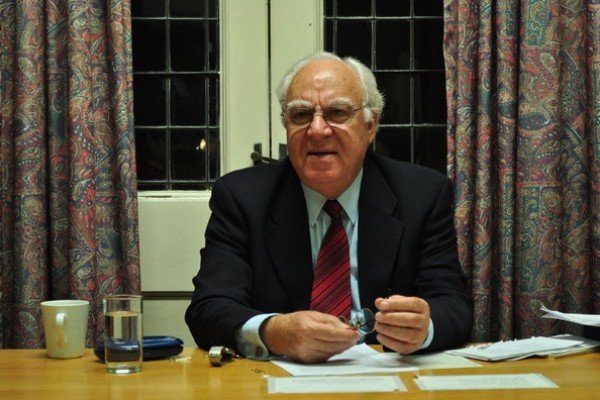
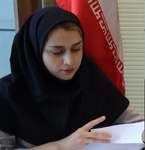
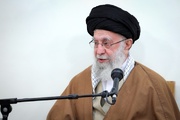
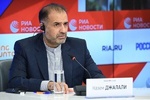
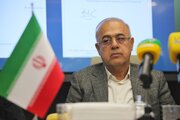

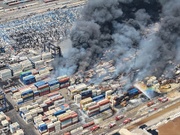
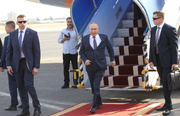
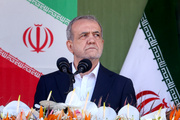

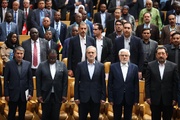
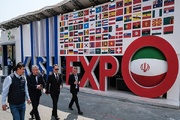
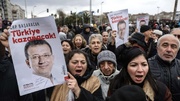
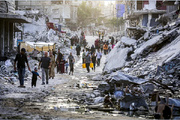

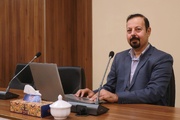
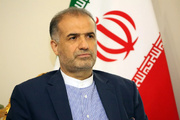
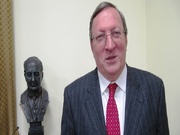

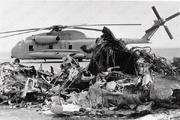
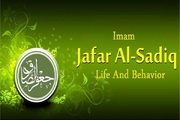
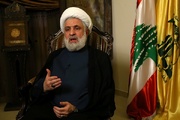
Your Comment